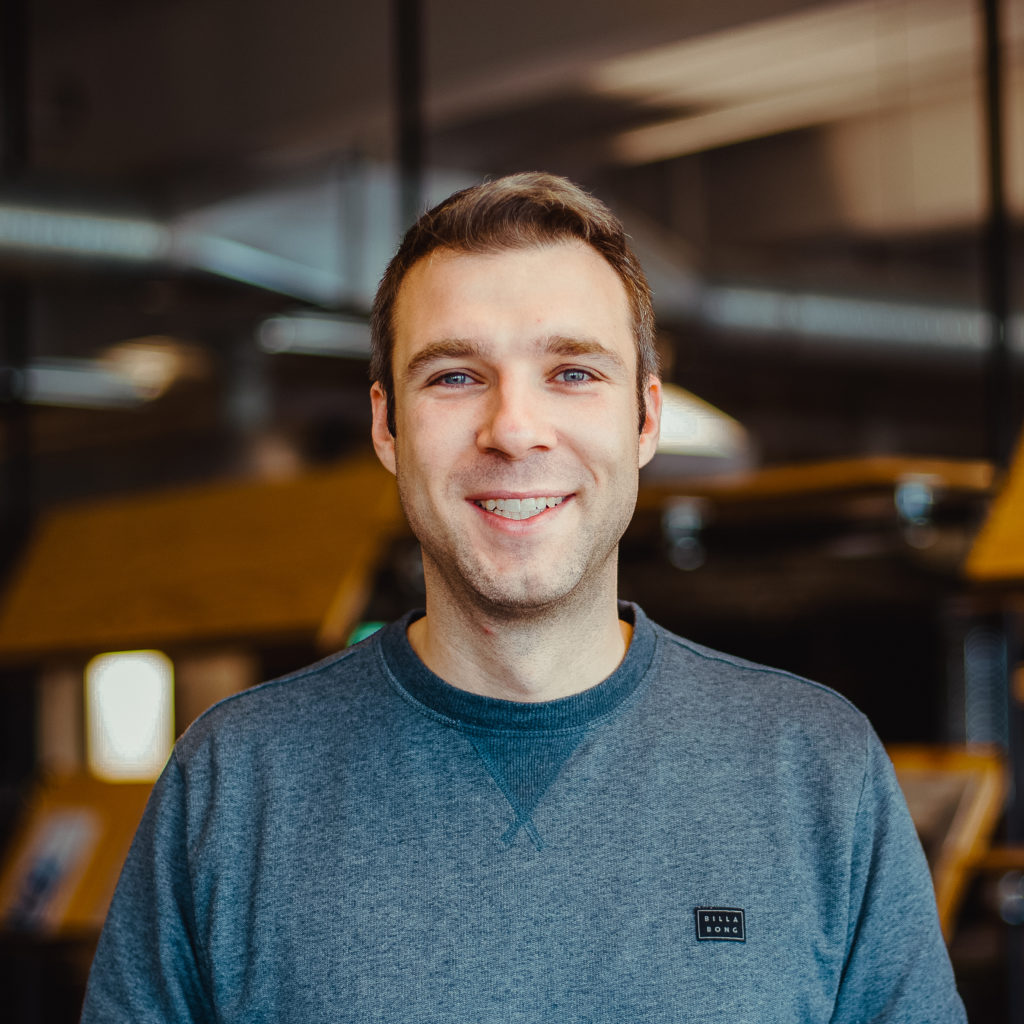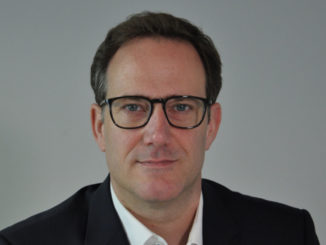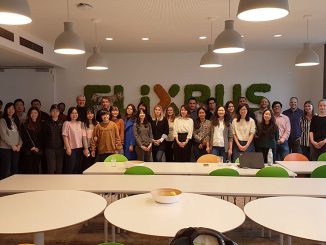
With more than 30 major companies groups, around 50,000 employees and sales of 15.6 billion euros, the Otto Group is one of the leading and most digital retail groups in the world. At the beginning of June at the second online speaker event celebrating the university’s 30th anniversary, Tobias Krüger, Division Manager Kulturwandel 4.0 (Corporate Culture) at the Otto Group, reported on how the German retail and retail-related services group, headquartered in Hamburg, successfully mastered the digital transformation and why this also required a cultural change.
Digitalization began at the Otto Group 25 years ago with the first website. But despite the implementation of the latest technical innovations – for example native apps or voice control functions – in the following years, the efforts were not enough: In the financial year 2014/15, the Otto Group made losses for the first time and it was clear that something had to change. This is precisely where Tobias Krüger, who had previously advised the corporate group on strategy for several years as an inhouse consultant and was therefore well integrated into the process of digital transformation, came in. As Division Manager Kulturwandel 4.0, Tobias Krüger’s task from then on was to drive and successfully shape the cultural change in the company in order to overcome the obstacles of digitalization. In the evening online session, Krüger explained that the digital transformation implies challenges on different levels: on the strategy and process level, on the level of the technological infrastructure and, last but not least, on the organizational and employee level. In order to lead the digital transformation to success, it is important to take all four layers into account, but often – and it was no different at the Otto Group – the employees (initially) fall behind. “Yet they are precisely a company’s most important asset. Whether a restructuring process is successful can be seen in the satisfaction and performance of the employees,” Tobias Krüger explained.
Communication as a Key Factor

Tobias Krüger’s team decided to implement the culture change at the Otto Group without an external consultancy and to design it as an open and participatory process. Tobias Krüger named communication as the most important key: it was absolutely necessary to talk to the people, to give them a voice, to listen to them and to take their needs seriously. In response to a question from the audience about how to convince middle management, the speaker had two comments. First, in his experience and opinion, it is not middle management that is most opposed to the process of cultural change. Here, it really depends more on one’s own personality, how curious and willing to experiment one is. On the other hand, Tobias Krüger emphasized that the secret of the restructuring process is not to convince, but rather to shift the discussion from the head to the heart.
Another participant was also impressed and noted that the Otto Group was already well prepared for the COVID-19 pandemic and its impact on work culture without even knowing it, as it had long since implemented New Work as the New Normal. Tobias Krüger agreed that this was definitely true for the technical and conversational setting, since 2017 all employees have had the possibility and infrastructure to work remotely, nevertheless digital working during the pandemic was different than before due to homeschooling and other challenges. Here, too, communication and leadership skills were needed.
Culture Change at the Otto Group nas a Process in Cycles
Overall, it was important for Tobias Krüger to emphasize that the culture change at the Otto Group cannot be seen as a successful prime example per se. He made no secret of the fact that there are also difficulties and challenges at their company and that, especially in the early days, only 10% of the proposed initiatives were crowned with success. Nevertheless, he encouraged participants not to be discouraged by the sometimes difficult and time-consuming process, reminding them that change works in cycles. “Sometimes the ideas just don’t fit the implementation – but they might later on. Even at the Otto Group, the process of digital and cultural change is not yet complete,” Tobias Krüger told the audience.
Many thanks to Tobias Krüger for taking part in our 30th anniversary online speaker event, offering fascinating insights, and sharing valuable tips and tricks!

You are interested in economics and want to acquire in-depth business know-how?
Then the international business degrees at Munich Business School (MBS) are just right for you! At MBS you won’t cram dry theory from old textbooks, but learn in a outcome-oriented way and gain valuable practical experience. Convince yourself:
Bachelor’s in International Business
Master’s in International Business
Master’s in International Business I Finance
Master’s in Innovation and Entrepreneurship
Master’s in International Marketing and Brand Management
Master’s in Sports Business and Communication
MBA General Management
Doctor of Business Administration



